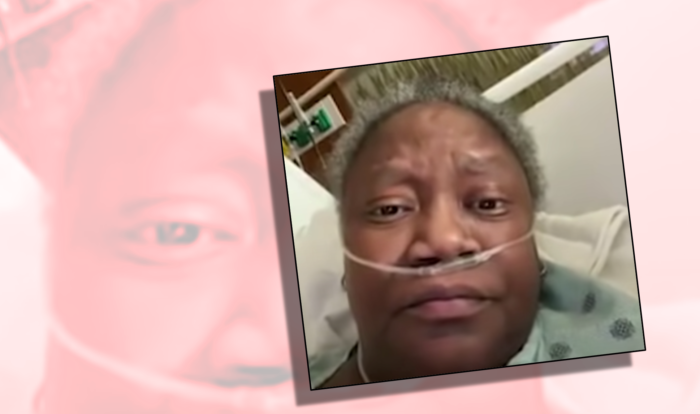
As variations of COVID-19 surface in Massachusetts and across the world, the present moment may serve as a time to reflect on the deep-seated nature of racism that persists
From the hills of Roxbury to the bayous of Alabama, COVID-19 is once again gripping the nation. And race and health continue to be tremulous.
The question we must ask ourselves is: How does this pernicious virus disproportionately punish Black people, and, Why?
Racism continues to be a public health crisis that requires ongoing attempts to repair and fix swiftly. Poor implementation of care has failed people of color. It highlights blatant racism in healthcare and systems ingrained in structural racism and causative factors that lead to the eradication of Blacks.
The recently deceased Dr. Susan Moore of Indiana, a Black Jamaican-born physician who died of complications related to COVID-19 in the middle of the current pandemic, opened the door to a renewed discussion about race and healthcare that many have attempted to ignore or eradicate. Having a sense that she would die amid the pandemic, Dr. Moore rang the alarms from her deathbed. Why should a Black woman have to die in such a heinous way?
Dr. Moore stated, “I put forth and maintain that if I was white, I would not be treated like this. Referring to the white doctor treating her, Moore added: “He made me feel like I was a drug addict. He knew I was a PHYSICIAN. This is how Black people get killed.” The irony of this horrific story is that when Blacks say within the healthcare system that they will die, they do.
This much is true and seeded in a painful reality: Across the nation, Blacks are subjected to uneven and disastrous patterns of dying that’s indicative of systemic racism within the medical and healing communities that continues near and far. Blacks die on cold beds without the compassion or quality of care afforded to white patients.
Let’s not forget and first reflect upon the fact that Black women are the most disrespected and disregarded women in the world. Therefore, her being a Black doctor did not allow her the respect of a white doctor, exploring the possibility that something was omitted in his assessment of her healthcare. He ignored her pain, mistaking it to be symbolic of the centuries-old, flawed ideology that Black women don’t feel pain.
The stereotype of the “angry Black woman” is a reincarnation of the old antebellum rooted in slavery and racism. The study of medicine and nursing focuses on many aspects of health; however, limited attention is focused on racism in healthcare and how it is a silent killer.
We can’t wait for another sentinel event like Dr. Moore to educate. Racism and health must be a part of clinical training in nursing and medical schools.
Statistics show that white medical students believe that Blacks have a higher threshold to pain. Therefore, this must be tackled via evidence-based research and core curriculum. In teaching, it will start preparing all clinicians to have a refreshed understanding and become aware of racism and trauma.
Racism can lead to death, as Dr. Moore put forth her impending doom. She was correct; it killed her. Mainly, Black women are stereotyped as angry, aggressive, uneducated, overly assertive, and expected to conform to the images of Anglo-Saxon women. Those stereotypes can lead clinicians to error.
We must grapple with the social determinants of how where you come from can lead to trauma, injury, or death. The most prestigious schools can teach medical dicta. However, they must now shift the education to teaching in nursing and medical schools’ the reality of racism in healthcare. We must save Black people because the truth is that people of color want to live. Blacks, like no other race, have continued to die due to poor implementation of care.
Racism is traumatic to health. When people of color are affected by racism, it shortens life expectancy. Oppression is engrained in systemic and structural racist institutions that are not limited to but include hospitals along with the judicial system.
To be affected by racism is an affront to a person of color’s health. The stamp of hate leads to physical and mental health issues. The reckless damage of ignorance, hatred, and misplaced rage will directly change who you are for the existence of your present life; that’s a profound reality that many attempt to escape.
How we start to fix the issues around racism in healthcare is by acknowledging racism as a public health crisis. We can start by considering the following suggestions:
- Implement race and health in medicine, nursing, and clinical studies as curriculum.
- Revisit and update global policies based on evidence-based research for better outcomes for blacks, marginalized, diverse, indigenous people, and persons.
- Address pre-existing comorbidities that are well-known silent killers, such as hypertension, diabetes, heart disease, kidney disease, including acute and chronic renal failure.
- Shift the focus to education, prevention, and early detection rather than palliative efforts on the dreaded death bed.
That’s a minuscule start to the racial reckoning and repair within the healthcare system that’s required. Understand that when Blacks say they will die, they do. Racism in healthcare must be addressed immediately.
Tricia Thomas is a Registered nurse in Massachusetts with over two decades of nursing, clinical management, pharmaceutical medical affairs, administration, and civic engagement background. In dedication to all my sisters on the front line!

